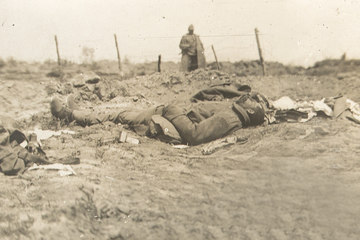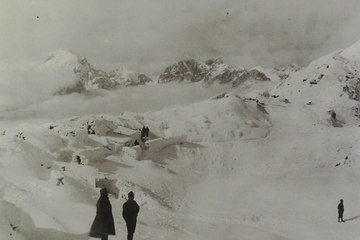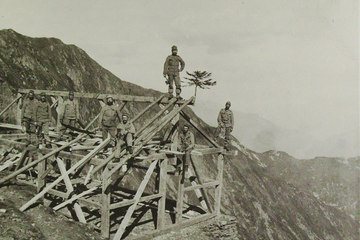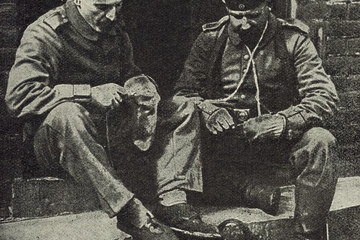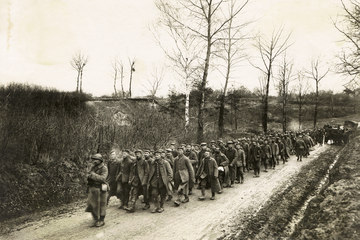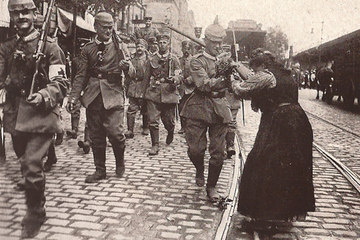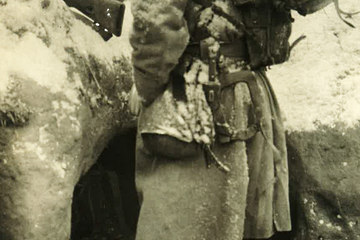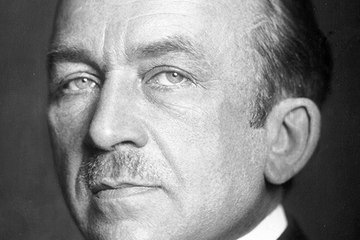Kill and be killed
Violence and death were omnipresent on the fronts in the First World War, and the soldiers had to face this practically every day. The fear of being wounded and their own deaths was constantly present, as was the visual presence of death in the form of “fallen” enemy soldiers and their own comrades. Moreover, they were constantly confronted with violence and death in combat and the actual act of killing; such experiences were completely new and extremely dramatic for most of the recruits of 1914.

